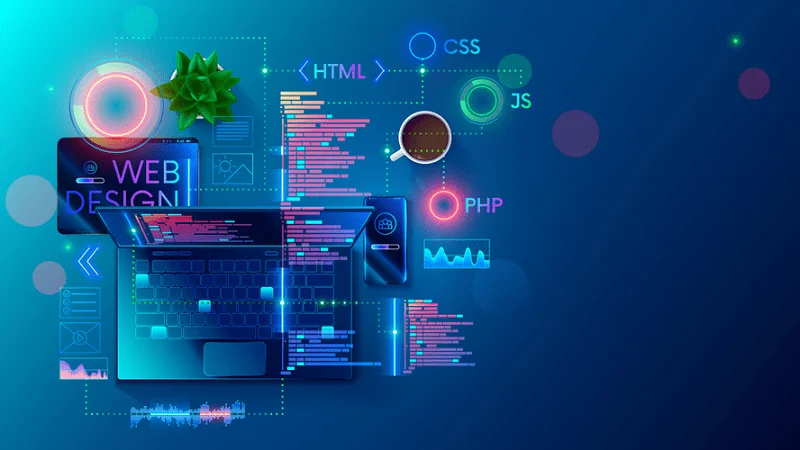As a policymaker, ensuring that the information you might be utilizing does not discriminate in opposition to already marginalized groups is a crucial element of data ethics. In our sources, knowledge ethics was mostly understood as the process undertaken to make sure responsible and sustainable data practices across its entire cycle, from assortment and management to evaluation and publication, to know the makes use of and dangers of current and future makes use of of information. We noticed that despite a broad consensus on the necessity for an moral lens when examining the potential uses of knowledge, the different sources placed a special emphasis on how and why we ought to always handle ethical issues. Therefore, on this paper we adopt an approach aligned with critical knowledge literacy, outlined by Brand and Sander (2020) as “the capacity to critically interact with datafication by reflecting on the societal implications of information processing and implementing this understanding in practice” (p. 2). This article helps a re-framing of research methods and to ‘zoom in’ on the specific function of information ethics in knowledge literacy and the shaping of analysis practices in accordance with AI Robotics the diploma to which the moral dimensions of knowledge are understood and considered. Secoda, as an information administration platform, offers many options that help organizations adhere to knowledge ethics rules.
Issues You Would Face While Implementing Information Ethics #
Continuously monitoring and adapting AI systems to right for bias throughout the AI lifecycle, hereunder ensuring variety among the many designers and developers of AI. In addition, information interoperability initiatives should prioritize, include, and support moral and accountable knowledge sharing practices. Data ethics refers to the rules and practices that govern the ethical use, administration, and sharing of knowledge, guaranteeing privateness data ethics examples, consent, and fairness. A business that is ethically responsible won’t simply adjust to knowledge privacy rules. Algorithms are skilled utilizing information, and typically the algorithm or the information could be biased.
How Does Knowledge Ethics Relate To Privateness And Security? #

In 2018, the revelation that Cambridge Analytica had harvested the non-public information of hundreds of thousands of Facebook users with out their consent resulted in important fallout. The scandal highlighted the devastating consequences of unethical information practices and led to requires stricter data laws worldwide. Microsoft demonstrates its ethical method to information administration via rigorous information governance.

Transparency: The Window Into Information Practices
Enterprises are on the lookout for individuals who can help monitor and manage their compliance with information laws. In an period where information guidelines the world and knowledge is continually circulating through the world of know-how, it is more necessary than ever to consider the ethical features of data assortment, utilization, and storage. The speedy development of know-how has given individuals, governments, and enterprises unprecedented access to information, posing severe concerns about how finest to manage this priceless resource. Data ethics, which sits on the nexus of technology and morality, is changing into increasingly necessary in figuring out the path of the digital landscape. In the analysed syllabi, moral frameworks and scholarly literature we found repeated reference to action-guiding principles.
What Is Data Ethics And How Can Storage Enhance Ethics Best Practices?
For instance, in sure universities, research knowledge is stored for seven years after a student’s graduation. In order to ship the best possible expertise when using our site, please replace to any of these newest browsers. This knowledge should never be used to determine who a person is before another person is able to make up their owns minds in regard to mentioned person. Customers who give out their data must also have a complete, open, and transparent view of how they information is being used, whether it is being offered for different functions they initially supposed, and they should be capable of have management within the flow of their private information. And if at any point you’d like to seek out out extra about our knowledge services at TPXimpact, don’t hesitate to get in contact with our staff.
Due to its poor data security policies, Equifax was deemed accountable for this knowledge breach. Lastly, it was fascinating to observe that syllabi, ethical frameworks and academic literature tended to focus on a smaller set of principles (or even a single principle), or place emphasis on different principles in separate publications. Data literacy programmes should be supported by a spread of social values to address the variety in a pluralistic society. The early literature on value-sensitive design has recognized privateness, non-discrimination, autonomy, and security as extensively shared values regarding info applied sciences. Yet, at the identical time Friedman et al. (2008) observe that they might battle in apply and need to be balanced. For instance, monitoring non-discrimination typically requires some invasion of privateness.
But in these unforgiving occasions, getting data ethics mistaken has higher consequences than ever before. In this tool, customers can review each bubble to replicate on particular questions, access additional guidance and resources, and write down each the current scenario and potential next steps for each area. Additionally, ODI offers a useful device for organizations to benchmark their maturity in relation to knowledge ethics and develop motion plans to enhance their practices. Data analytics professionals must be conscious of the necessities of data ethics and the implications of non-compliance so they can be liable for knowledge usage and evaluation.
We nonetheless defend our strategy because it facilitates the inclusion of voices which are often marginalised in the educational dialogue or overshadowed by reviews of financially strong institutions (Powell & Koelemay, 2022). Furthermore, databases which would possibly be respected in academic venues are often dominated by for-profit publishing homes and also not free from algorithmic biases. We due to this fact decide that our evaluation can complement beforehand revealed systematic critiques by diversifying the scope of ethical perspectives. Organizations have to be cognizant of the origins of the reference data utilized by algorithms to avoid placing bias into their platforms. Interpretability, which explains how a trained mannequin reaches a particular decision and identifies sources of error to enhance model accuracy, can help organizations establish and reduce bias.
It highlights the need for moral analyses to focus on the content material and nature of computational operations—the interactions amongst hardware, software program and data—rather than on the number of digital technologies that allow them. Only as a macroethics will information ethics provide options that can maximize the value of knowledge science for our societies, for all of us and for our environments. Data ethics is a vital part of accountable data administration, ensuring that knowledge practices align with principles of fairness, transparency, and respect for privateness. Organizations can build belief, improve their popularity, and create a sustainable competitive benefit by prioritizing knowledge ethics.

Data ethics is the department of ethics that evaluates data practices with respect to rules of fairness, accountability, and respect for privateness. It encompasses the ethical points associated to information collection, analysis, dissemination, and use, guaranteeing that data-driven actions don’t harm people or society. Data ethics requires considering the implications of data practices on privacy, consent, transparency, security, and potential biases, aiming to create a framework that promotes belief and integrity in information utilization. Furthermore, the consequences of data-driven choices for society name for a commitment to equality and accountability. The possibility of biases, discrimination, and social injustices being reinforced by algorithms and analytics is lowered by ethical knowledge practices.
Data ethics is the field of ethics that assesses an organization’s technology, assortment, safety, and use of knowledge. It is a group of ideas that defines the correct manner of information gathering and dissemination and flags doubtful situations the place data integrity may be compromised. It consists of pointers that enterprises can comply with to frame their information policies. In short, it tells organizations if they’re utilizing their knowledge correctly and ethically. Interest in information ethics is growing quickly and we can see a strong diversification of themes and ethical approaches. Scandals from business and politics have triggered robust research interest in the area, enriching the discussion with new case studies and identifying new forms of threats to people, communities and democracy.
For example, girls and women and their living conditions are both underrepresented or not prioritized in data units, resulting in policy designs that don’t tackle their challenges and must be addressed. The use of information has the facility to rework people’s lives – both for the public good and in the pursuits of some. To make sure that the rights of people whose knowledge is being shared are protected and society as an entire advantages, a rights-based method to the gathering, storing and use of knowledge is needed. Accountability implies that the organization is answerable for the data after it’s collected. If there are any breaches, deletions, or leaks, the organization is held accountable for the violation and its penalties for users. The social security numbers and passwords of virtually 147 million folks had been stolen.
While you will not be the particular person responsible for implementing tracking code, managing a database, or writing and coaching a machine-learning algorithm, understanding data ethics can let you catch any instances of unethical information assortment, storage, or use. By doing so, you probably can protect your prospects’ safety and save your group from legal issues. Depending on how broad “action-guiding principles” are understood, there was another element that could presumably be included in this framework. As research strategies and data science syllabi, and moral framework had been strongly user-centric, there was repeated reference to “research integrity”. This was primarily understood in a narrow sense, as a condemning knowledge fabrication, information manipulation and information falsification.
We have synthesised the large variety of moral calls for and appeals into eight action-guiding rules that represent our prolonged knowledge ethics framework (Table 4). The most incessantly discovered ideas are respect for autonomy (in phrases of consent) and privacy, which are mostly mentioned within the context of big-data and machine-learning, elevating consciousness of the want to inform users of how their knowledge is being collected, processed and guarded. Another incessantly mentioned concern pertains to information governance, explained as the algorithm that should apply to all to manage data-led activities and to put individuals before data, which is known as using information to resolve social issues and to enhance the standard of life. In a 3rd step, we reviewed an intensive body of literature about knowledge practices, analysis ethics, and data ethics from diverse disciplines. Our purpose was to synthesise a range of key arguments and ideas into a transversal framework that can be adopted across the disciplines. While different authors with related pursuits, such as Saltz and Dewar (2019), have conducted systematic evaluations of literature which reveal valuable insights, we question whether a scientific method have to be understood as a ‘gold standard’ or as all the time appropriate to address analysis questions.
A buyer fascinated in the aesthetics of the identical car could focus on its colour and on the overall look and will disregard the form, weights and material of the automotive’s components. In addition to owning their private information, knowledge subjects have a right to understand how you intend to collect, store, and use it. Most importantly, individuals ought to have the ability to freely give or withdraw consent to its use. It refers to deciding which knowledge you now not want and limiting how long will most likely be stored.
- Another frequently talked about concern pertains to knowledge governance, defined because the set of rules that should apply to all to manage data-led actions and to place people earlier than knowledge, which is known as utilizing data to unravel social problems and to improve the standard of life.
- At instances, it could be applicable to contain civil society organizations and human rights establishments to symbolize teams in danger.
- Part 2 covers affected person care, including triage, standards of care and the professional duties of health care staff in emergencies.
- It’s not clear from this example whether or not the disparate impression was intentional or a results of unintentional bias in an algorithm.
- For another organization, Aliaxis, which also uses Snowflake as their core data platform, Atlan served as “a bridge” between various tools and applied sciences throughout the data ecosystem.
Transform Your Business With AI Software Development Solutions https://www.globalcloudteam.com/ — be successful, be the first!
